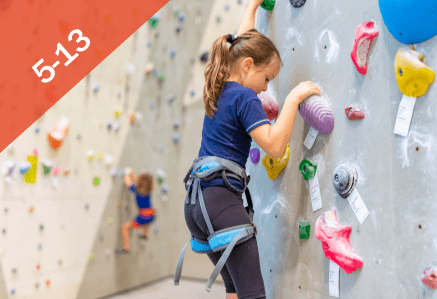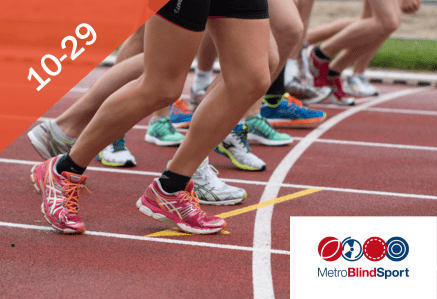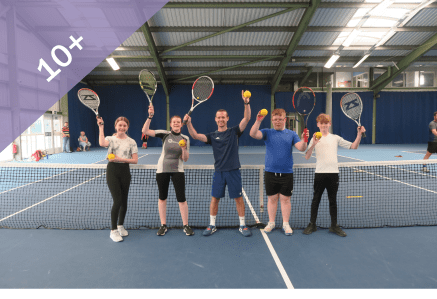


VICTA activities provide young people with a vision impairment and their families with the confidence, skills, aspirations, and qualities needed to increase self-belief and strengthen self-advocacy thereby improving educational attainment, employability and earning potential.
We believe that sport is a perfect delivery device for engaging young people in collaborative learning and delivering this long term change.
We want to encourage vision impaired young people to engage with sport on their own terms and thereby increase their life chances. To achieve this, we want to show how sport can adapt and become more flexible and inclusive to allow more children to play in the way they want to, whether for fun, for social reasons or competitively.
Team sports are seen to develop important social and mental skills in children and young people. It provides opportunities to work together, which often fosters a sense of belonging. While individual sports foster autonomy. Overall, sport promotes responsibility, goal setting and a higher level of preparation. Psychologically, many of these skills build and support academic readiness.
In addition to introducing vision impaired young people to a range of VI sports, VICTA Sport will encourage a lasting engagement with sport and physical activity. Our parent/family engagements allow participants to build knowledge, networks and skills that support and enhance the whole family’s mental wellbeing, reducing isolation and improving lives long term.
Long-term benefits of participation in VICTA Sport:
- builds knowledge: young people (and their parents and siblings) are able to challenge limiting presumptions they and others have about their abilities especially within and outside of an educational setting
- builds skills: strengthened advocacy skills, by both VI young people and their parents, creating positive environments in which the young people can live, learn and thrive to their full potential
- builds connectivity: the limited opportunities to meet other in the same situation is removed through VICTA networks and creates opportunities to share their learning within their communities
- develops physical literacy: sport helps with the acquisition of motor skills such as balance, stability, postural control and muscle strength, and psychomotor skills such as coordination, manipulation and dexterity that support activities such as handwriting, drawing and typing
- enhances mental wellbeing: physical activity can contribute to enjoyment and happiness, and more broadly to life satisfaction through increased social interaction.
- builds self-confidence: the regular exercise that comes with playing sport can help boost confidence and improve self-esteem. As strength, skills, and stamina increase through playing sports, self-image is believed to improve as well. Sport provides an individual with a sense of mastery and control, which often leads to a feeling of pride and self-confidence.
- linked to leadership traits: team sports such as football and baseball, are breeding grounds for leadership traits. Because of the opportunity to train, try, win, or lose together, people involved in sports are naturally more inclined to adopt a “team mindset” in the workplace and in social situations. The team mindset leads to strong leadership qualities over time.

Blind and partially sighted football
VICTA Sport is working with organisations such as the FA and the Partially Sighted Football League to develop and promote opportunities for young people with a vision impairment to get involved in football.
These adapted versions of the sport allow those with different sight loss classifications to be able to participate. The team sport environment develops social bonds and a sense of belonging whilst also enhancing key transferable skills such as teamwork, communication and leadership.

Cycling
British Cycling’s Limitless club network provides inclusive opportunities for disabled people, including those with a vision impairment, to participate in cycling.
VICTA Sport has partnered with British Cycling to deliver cycling taster days that introduce the activity of cycling in most cases for the first time, and allow the whole family to experience adaptive equipment first hand, such as tandem bikes. Cycling is a fun and low impact form of exercise that can easily fit into daily life e.g. cycling to the park or the shops.

Adaptive rowing
Love Rowing (Charitable arm of British Rowing) have launched the programme ‘Row the Rhythm’, encouraging more people with sight loss into the sport. VICTA Sport has delivered taster days at different clubs across the UK to support the introduction of more VI young people into rowing.
Rowing is very easily adapted for those with a vision impairment as it is a sport that relies on a rower to get a feel for how the boat is moving and responding to the audio cues rather than visual ones. As such, rowers with sight loss are easily integrated into sighted crews. Rowing clubs are well known for being friendly and inclusive environments and a great place to meet new friends.

Swimming
Swimming is not only a fun form of exercise, but also an important life skill. VICTA Sport and Swim England are working in partnership to deliver a series of sessions across the UK that allow young people with sight loss to experience time in a swimming pool in a safe and inclusive environment, whilst parents receive information and advice on how to get their VI child into swimming, including how to access suitable adaptive swimming lessons.
Get involved in VI Sports with VICTA
Check out the calendar below to find out what’s coming up. To find out more about getting involved email sports@victa.org.uk or sign up for email updates.
VI Climbing Taster Session – Leeds
Date: 6 September 2025
Location: Leeds
Age: 10 to 17s
Apply now
VI Cycling Taster Session – Reading
Date: 19 August 2025
Location: Reading
Age: 8 to 17s
Apply now
VI Climbing Taster Session – Milton Keynes
Date: 5 August 2025
Location: Climb Quest, Milton Keynes
Age: 5 to 13s
Apply now
VICTA Sport Travel Offer to Metro Blind Sport’s Athletics Games 2025
Date: 14 June 2025
Location: London
Age: 10 to 29 years
Apply now
VICTA Sport Family Day with the National Paralympic Heritage Trust
Date: Sunday 8 June 2025
Location: Stoke Mandeville
Age: 5 to 17 years
Apply now
Junior VI Tennis Taster with South Yorkshire Tennis Club
Date: 27 May 2025
Location: Sheffield
Age: 7 to 17 years
Apply now











